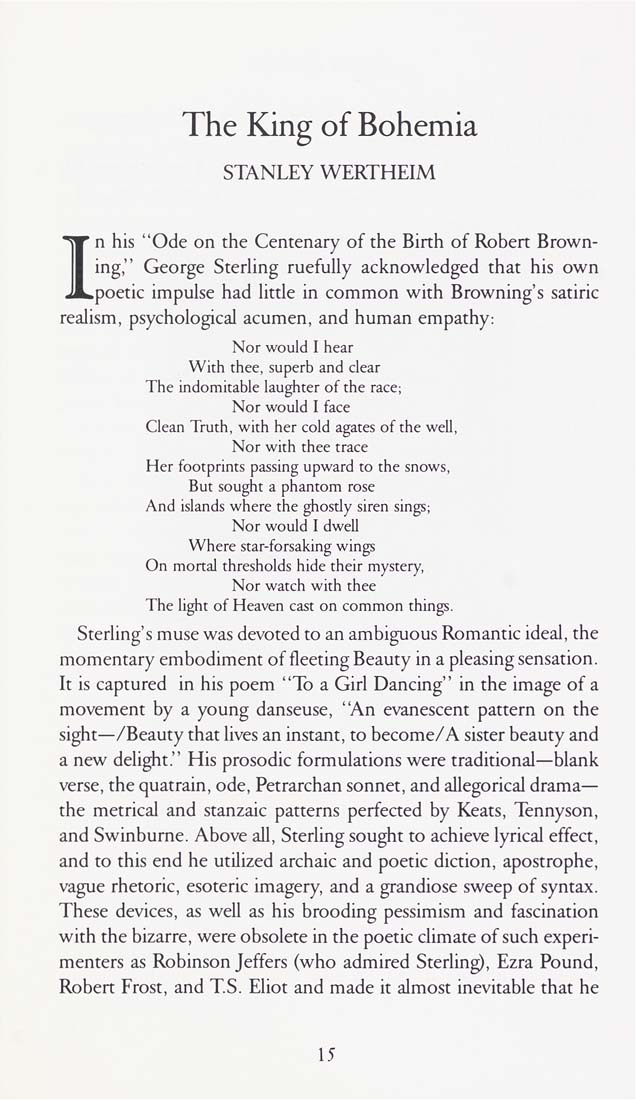Columbia Library columns (v.38(1988Nov-1989May))
(New York : Friends of the Columbia Libraries. )
|
||
|
|
|
|
| v.38,no.3(1989:May): Page 15 |

The King of Bohemia STANLEY WERTHEIM In his "Ode on the Centenary ofthe Binh of Robert Brown¬ ing," George Sterling ruefully acknowledged that his own poetic impulse had little in common with Browning's satiric realism, psychological acumen, and human empathy: Nor would I hear With thee, superb and clear The indomitable laughter of the race; Nor would I face Clean Truth, with her cold agates of the well. Nor with thee trace Her footprints passing upward to the snows. But sought a phantom rose And islands where the ghosdy siren sings; Nor would I dwell Where star-forsaking wings On mortal thresholds hide their mystery. Nor watch with thee The light of Heaven cast on common things. Sterling's muse was devoted to an ambiguous Romantic ideal, the momentary embodiment of fleeting Beauty in a pleasing sensation. It is captured in his poem "To a Girl Dancing" in the image of a movement by a young danseuse, "An evanescent pattern on the sight—/Beauty that lives an instant, to become/A sister beauty and a new delight." His prosodic formulations were traditional—blank verse, the quatrain, ode, Petrarchan sonnet, and allegorical drama— the metrical and stanzaic patterns perfected by Keats, Tennyson, and Swinburne. Above all. Sterling sought to achieve lyrical effect, and to this end he utilized archaic and poetic diction, apostrophe, vague rhetoric, esoteric imagery, and a grandiose sweep of syntax. These devices, as well as his brooding pessimism and fascination with the bizarre, were obsolete in the poetic climate of such experi¬ menters as Robinson Jeffers (who admired Sterling), Ezra Pound, Robert Frost, and T.S. Eliot and made it almost inevitable that he 15 |
| v.38,no.3(1989:May): Page 15 |







